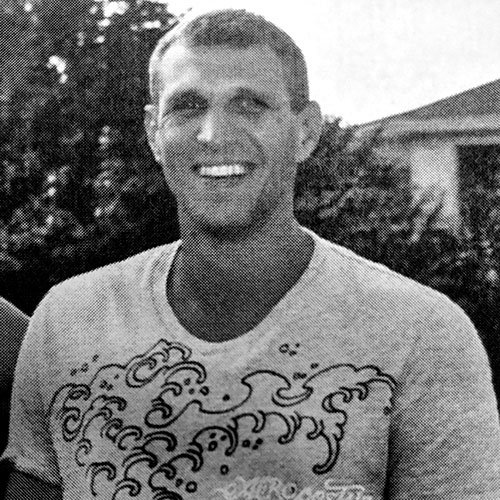FROM THE INSIDE
★ ★ ★ ★
THE WRITERS’ GUILD

By Ryan M. Moser
We called ourselves The Writers’ Guild. Brad was quixotic, always stretching his vocabulary to defend the relationship with the soul; Ethan was my sounding board and a master of metaphor, layering image upon image. And I was the storyteller. Between us we’d won the monthly short story contest six times in a row, besting our classmates over and over with our collaborations.
The creative writing workshop met once a week in an old classroom by the chow hall. It was my first formal workshop and a glimpse into the possibilities of collaborative creativity. The people I’d met in prison differed greatly from the stereotype: they weren’t violent, selfish, or indifferent to caring and mutual aid. They weren’t a group of lone wolves out to get each other. In that community of writers, we all had similar dreams and vivid imaginations. The class was revelatory for me: I hadn’t understood things like theme or universality or tropes, but I thrived under the tutelage of our teacher. I really enjoyed learning for the first time in my life. With the encouragement of the small writing workshop, I started to practice different genres and forms, and created a portfolio of completed work. I ordered textbooks on prose and read more nonfiction and poetry.
After the workshop the Writers’ Guild would sit in the noisy TV room at a small table comparing notes, establishing outlines, developing characters, and revising until our work sparkled like a polished diamond. Some months we would toil by the glow of the hall’s faint night-light or whisper to each other, collaborating on a single story; others we’d each write our own and submit the best one—a friendly competition within a competition.
Trying to find a quiet place to study or write in a state correctional institution is like trying to play the violin while climbing Mount Everest. We were lucky to have a space to meet at all: the Florida Department of Corrections implements lockdowns near-daily due to stabbings and drug overdoses. Everybody knows that when you see two medical orderlies running down the sidewalk with a wheelchair or the Emergency Response Team (aka Goon Squad) taking pictures of a crime scene, you’re about to spend a long time sitting on your bunk or confined to your unit.
“What are you writing?” I’d hear all day long from each passerby. I knew their curiosity was innocent, but it was just one more thing disrupting my productivity. There were constant interruptions for head counts, chow, and the daily fist fights that are part of prison life.
One month in 2018 I wrote a “The Farmer’s Pond.” It was a short autobiographical ekphrastic, inspired by a photo of a young farmhand in a book about Amish life. The Writers’ Guild refined the plot and edited the grammar over weekends while everyone else played Texas Hold ‘Em, watched football, or got inked with gang tattoos.
“This one has some real potential,” Ethan told me as we talked over lunch. “You should send it out to magazines.”
I immediately balked. I didn’t want to submit my writing to serious places because I knew I wasn’t as good as the other authors I’d read throughout my life: Franzen, Homer, Burroughs. Basho Keats. Hirshfield and Jung. But when my story won the monthly writing contest, I decided to take a chance. I mailed copies to several literary journals listed in my Writer’s Digest, and it felt like I’d taken a step towards something credible.
On the cell block, The Writers’ Guild helped me with a synopsis for a novel I’d been considering; Ethan and Brad spent countless hours in my cell fleshing out ideas, reading material, editing, or just storyboarding plot ideas. We created characters in great detail and sat for hours talking and laughing. Everyone took the time to give each other feedback on individual work; we were chipping in to proofread stories or waking up early to review my newest chapter. We took it seriously, skipping movies or rec yard to work on a piece.
As the months passed, I received several rejections in the mail from literary journals. I welcomed these impersonal form letters as my long-distance link to the writing community and the world at large. Mailing submissions out and then waiting for editors to respond was like throwing a boomerang in the outback: my self-addressed stamped envelopes would come back to me every time. I saw my rejections as a challenge; I worked harder and faster.
In the library, I would sift through the dusty shelves looking at literary magazines, scan the author biographies in the back, memorize their MFA credentials, and imagine myself winning a Pushcart Prize or O. Henry Award: But I knew it was never meant to be for me, a career criminal. l was just a juxtaposition of wasted potential and an erudite vocabulary.
I received a familiar piece of mail—another self-addressed stamped envelope returned from a publisher. I looked at my cellmate and writing partner. “You open this one, Ethan,” I said. “I need some luck.”
My friend tore the letter open and, after a moment of suspense, read it aloud.
“Congratulations. The Evening Street Review is happy to inform you that ‘The Farmer’s Pond’ has been accepted for issue number thirty-two in the fall of 2019.”
We looked at each other stunned.
Sometimes you make a small decision in your life that leads to something of great consequence, which, looking back, you could never have foreseen. When I look at how far I’ve come as a writer I’m proud of my modest accomplishments, but I never thought it would happen because of a ragtag group of readers and prison writing workshops. Over time, I realized that every writer needs a helping hand. I formed my greatest allies within a cold place of hardship and sorrow, and the bond I formed with other men writing inside prison was greater than all of the other resources combined. Beyond all expectations I had not only found a purpose, but also a supportive creative community of like-minded souls to help me on my writing path.

Ryan M. Moser is a recovering addict serving a ten-year sentence in the Florida Department of Corrections for a nonviolent property crime. Previous publications include Evening Street Press, Storyteller, Santa Fe Literary Review, The Progressive, themarshallproject.org, medium.com, thewildword.com, thestartup.com, and more. In 2020, his essay “Injuries Incompatible with Life” received an Honorable Mention award from PEN America, including publication on pen.org. Ryan is a Philadelphia native who enjoys yoga, playing chess, and performing live music. He is a proud father of two beautiful sons.
This column was made possible with the help of Exchange for Change, a non-profit based in Florida that teaches writing in prisons and runs letter exchanges between incarcerated students and writers studying on the outside.
Exchange for Change believes in the value of every voice, and gives their students an opportunity to express themselves without the fear of being stigmatized. Their work is based on the belief that when everyone has the ability to listen and be heard, strong and safe communities are formed, and that with a pen and paper, students can become agents of change across different communities in ways they may otherwise have never encountered.
























0 Comments